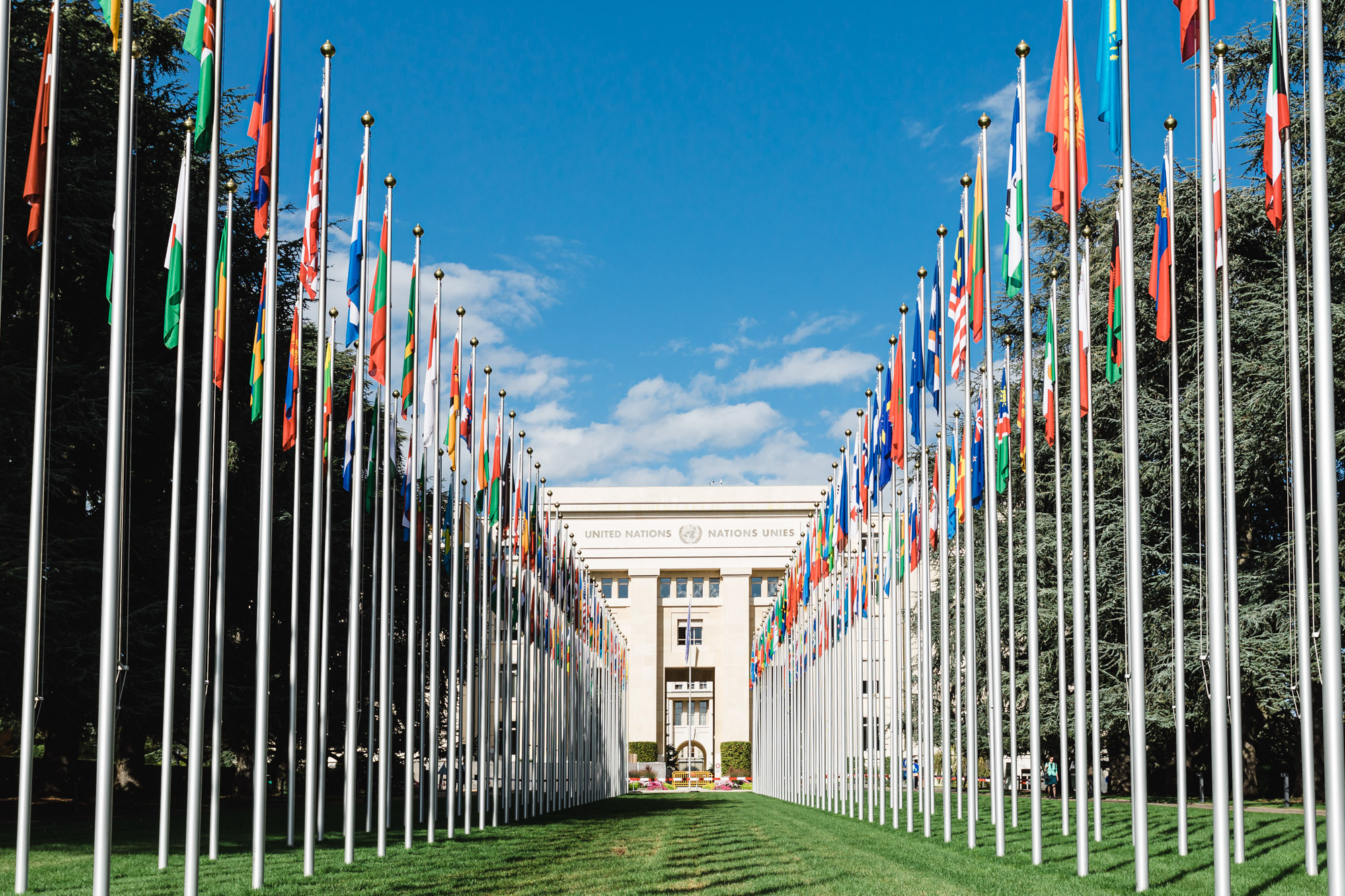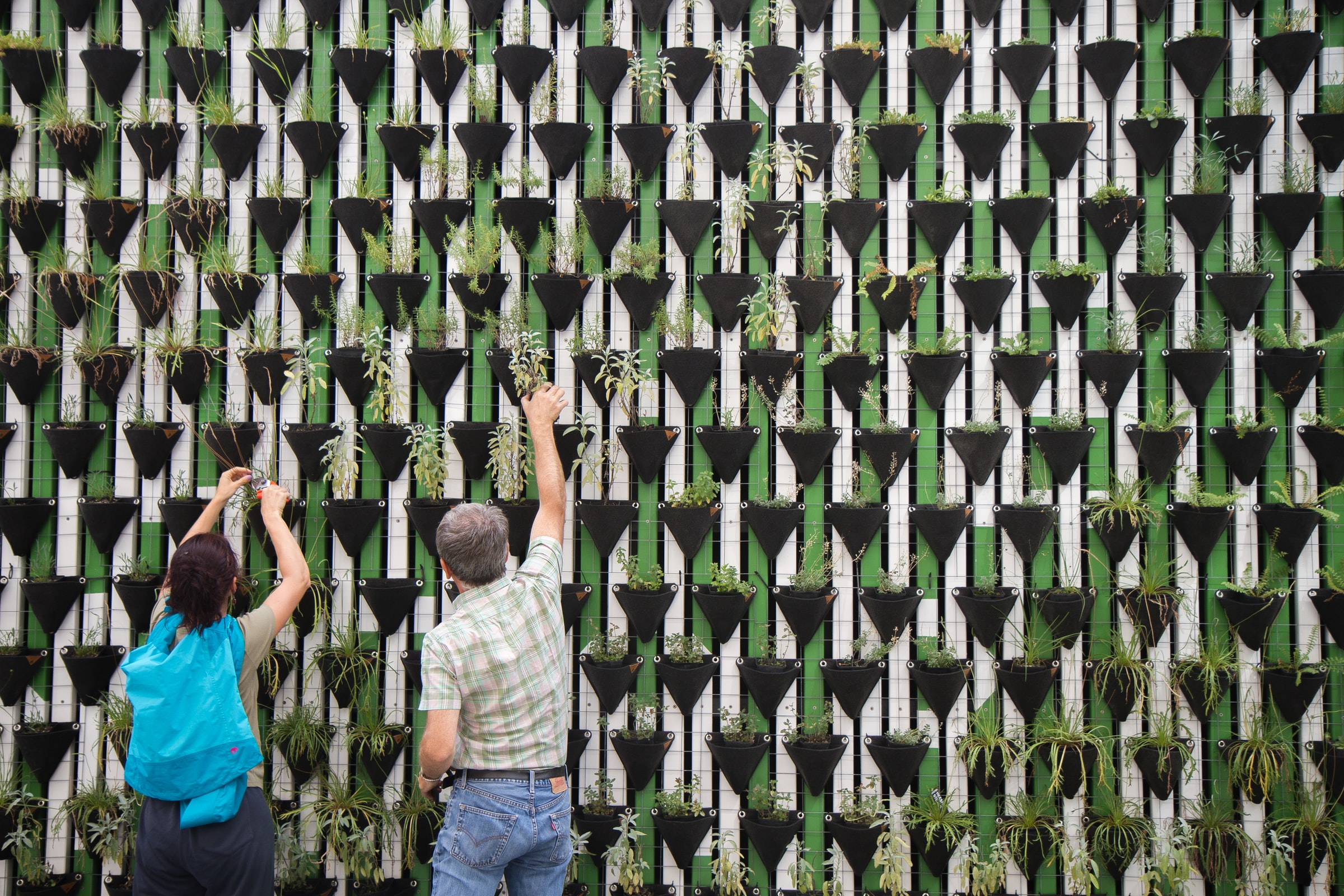Climate-centered mobility for a sustainable recovery. Responding to wildfires. Understanding the role of protected areas as nature-based solutions. On the road to a successful energy community: identifying and overcoming potential barriers and challenges. Transforming buildings and districts into power plants. Climate stories from the Anthropocene. Discover these and more online events of the week!
Subscribe to Climate Online’s newsletter to be reminded about weekly event updates by e-mail:

Biodiversity & Environment
16 February, 14:00 – 15:30 CET
“Understanding the role of protected areas as nature-based solutions: Part 1” by IUCN
Two upcoming webinars discuss how protected and conserved areas contribute to the wider aims of sustainable development and to building back better in the wake of the pandemic. The first, on 16th February, provides guidance on the contributions of area-based conservation to many of the UN Sustainable Development Goals and looks at how this can be translated into direct financial returns to help with protected area management or support communities living in or around the area. It should be of interest to anyone trying to integrate protected areas more fully into a country’s sustainable development agenda.

Climate Science & Policy
15 February, 15:00 – 16:30 CET
“Can the Green Deal boost EU-African Union relations and economies?” by Clean Energy Wire
The EU has set the course for climate neutrality by 2050, but its ‘Green Deal’ sustainable growth strategy could have a sizeable impact far beyond the continent itself. Implemented correctly, it could help deepen the relations between Europe and Africa and strengthen the economies on both continents. However, competitors and geopolitical rivals like the U.S. and China could already be one step ahead and the EU must quickly offer an attractive alternative. The long-delayed 6th European Union- African Union summit, set to take place in Brussels on 17-18 February, could be a perfect opportunity to renew relations and kickstart closer energy transition cooperation. Clean Energy Wire invites leading thinkers, politicians and business representatives for a discussion ahead of the summit where journalists will be able to ask their questions.
15 February, 19:00 – 20:00 CET
“Direct Air Capture Facility Development in the United States” by Institute for Carbon Removal Law and Policy and Northwestern University
As the United States explores the potential for large-scale carbon dioxide removal and utilization, some of the most important developments are taking place in America’s heartland. With funding from the U.S. Department of Energy the Illinois Sustainable Technology Center at the University of Illinois Urbana-Champaign (ISTC) is leading a team to develop the designs and feasibility assessment for the first commercial-scale direct air capture and storage system for carbon removal in the United States. This webinar features Kevin C. OBrien, Director of the ISTC and the project’s principal investigator. Dr. OBrien will discuss developments related to this project, as well as projects in Illinois that may help to advance the development of carbon removal and use.
15 February, 20:00 – 21:00 CET
“Climate Stories from the Anthropocene” by Oxford Climate Society
In this session with climate reporter Shannon Osaka and climate communications researcher and anthropologist Karl Dudman, we discuss ways and forms of story-telling around the climate crisis that steer away from traditional climate framings such as disaster narratives or techno-optimism. How do we discuss climate change beyond the prism of scientific framing? How can journalism reach beyond the social and cultural barriers to climate change visibility? How can we engage with different kinds of climate apathy – emerging from institutional actors, businesses and even some affected communities?
15 – 16 February
“How Ministries of Finance Can Drive Resilient, Low-Carbon Development in Latin America and the Caribbean” by World Resources Institute – WRI and German Corporation for International Cooperation – GIZ
Finance ministries play a crucial role in the face of climate change challenges, from their functions of managing and evaluating public spending, budgeting, fiscal policy and mobilizing financing. While technical units within ministries of finance are becoming more capable at incorporating these factors into their decision-making, this must be accelerated and consolidated — especially in the context of economic recovery after the COVID-19 pandemic and its consequences on spending and the fiscal balance of governments. The online exchange will deepen the debate on how the countries of the region can take advantage of different tools to achieve their goals of resilient and low-carbon development, exceeding the challenges presented by the socioeconomic context of the region.
16 February, 10:00 – 11:00 and 16:00 – 17:00 CET
“Monthly COP27 Webinar for Local Governments and Municipal Authorities” by ICLEI
Yunus Arikan, Director of ICLEI Global Advocacy, orients local and regional governments on the important issues of multilevel governance and progress in the global climate negotiations. ICLEI acts as the focal point of the Local Governments and Municipal Authorities (LGMA) Constituency.
16 February, 14:00 – 16:00 CET
“State of the European Green Deal: two years after” by European Roundtable on Climate Change and Sustainable Transition – ERCST
This session is intended to look at State of the EGD after two years, after some of the Draft Parliament opinions have been issued, and in light of the international situation after COP 26, but ahead of the global stocktake in 2023. During this session we will reflect upon the following questions: (1) Do you think it is possible to conciliate the growing tensions among different policies (simultaneously reducing emissions, keeping prices low and guaranteeing security of supply) in the framework of an ambitious fit for 55 package? Is the proposed Fit for 55 realistically implementable? (2) What are the alternatives to achieve this conciliation without incurring in an excesive use of regulation? (3) Do you think the political willignes to broaden the technological arsenal to achieve the EU 2030 and 2050 targets is different today when compered to the general sentiment at the time the EGD communication was first launched two years ago?
16 February, 21:15 – 22:00 CET
“Responding to Wildfires” by Stanford University
In recent years, wildfire has gone from an infrequent and distant news item to a centerstage issue spanning many consecutive weeks for urban and suburban communities. Frequent wildfires are changing everyday lives for California in numerous ways – from public safety power shutoffs to hazardous air quality – that seemed inconceivable as recently as 2015. Moreover, elevated wildfire risk in the western United States (and similar climates globally) is here to stay into the foreseeable future. This event is a part of seminar series where you can hear from a spectrum of researchers, decision makers, and industry experts on some important issues and challenges related to wildland fires. As a non-Stanford attendee contact Derek Fong (dfong@stanford.edu) for access to the event.
17 February, 9:00 – 10:30 CET
“Embracing ESG – Challenges and Opportunities chasing Net Zero” by Climate Bonds
This forum brings together the most influential issuers, who would talk about the motivation behind their issuances, how their organizations are aligned to the environmental and social values embedded in the issuances and also what is the path likely, going ahead.
17 February, 10:00 – 11:30 CET
“An ambitious net-zero roadmap for South Korea: emissions reduction pathways, drivers, costs and benefits” by Agora Energiewende
South Korea – the 10th largest economy and 11th largest greenhouse gas emitter in the world – has pledged to become climate neutral by 2050 and adopted an enhanced 2030 National Emissions Reduction Target. During this webinar, panelists will present and discuss the alternative net-zero roadmap based on four main strategies. In addition, the political implication of the result will be discussed in the context of the upcoming presidential election in Korea.
17 February, 18:00 – 19:00 CET
“The Best Climate Science You’ve Never Heard Of” by Covering Climate Now and Scientific American
Most journalists have long echoed what we thought was the scientific consensus: Even if greenhouse gas emissions stop, global temperatures will keep rising for 30 to 40 more years, mainly because of carbon dioxide’s long lifetime in the atmosphere. But in fact the latest science doesn’t say that. The lag time for temperature rise would actually be as little as 3 to 5 years, as was noted in the latest IPCC report last August and explained in Scientific American last October. This research carries paradigm-shifting implications for how societies respond to the climate emergency — and how our audiences think and feel about the story. With the next IPCC report scheduled for release later this month, this press briefing will get you up to speed on this and other key aspects of the latest science.

Renewables & Energy Transition
15 February, 9:00 – 11:30 CET
“On the road to a successful Energy Community: Identifying and overcoming potential barriers and challenges” by DECIDE
The energy transition is a fundamental step to reach a sustainable future. Energy communities and Collective Actions are the pivotal point of this epochal shift that can only be realized with the engagement of people in the active production and responsible consumption. The awareness around the potential of energy communities is rising but even though more and more people are convinced by the economic, social and environmental benefits of setting up such structures, many can finds themselves lost when it comes to pass from theory to action. Where to start? What are the key elements to secure? Which expertise are needed? These are some of the questions that three examples of energy communities and collective action that approached the challenge to create energy communities will share in this virtual workshop. Check agenda of the event here.
15 February, 10:00 – 11:30 CET
“Transforming Buildings and Districts into Power Plants” by European Commission and Covenant of Mayors – Europe Office
Recognising the importance of driving sustainability transformations at the neighbourhood- and district-level, the European Commission and national governments are supporting the piloting and replication of approaches that seek to create districts that produce net zero GHG emissions, with a surplus of energy being generated. Against this backdrop, the European Covenant of Mayors – in collaboration with the EU-funded project EXCESS – organises a dedicated webinar, in which exemplary district-level initiatives in three European cities are featured. Representatives from the cities of Heraklion, Limerick and Oulu will be joined by two experts working on Positive Energy Buildings and Districts (PEBs and PEDs), to present and reflect on key opportunities and challenges to transform existing buildings and urban districts.
16 February, 11:00 – 12:30 CET
“People-Centred Transition – An Indian Perspective” by International Energy Agency – IEA and The Energy and Resources Institute – TERI
The event will focus on the opportunity presented by a ‘People-Centred Transition’, and how this can be applied to the Indian context via policies focused on innovation, deployment of clean technologies, investment in green infrastructure, labour market interventions, and community development. What lessons can be learned from global success stories of just transition? How to make sure distributive, allocative and procedural justices are adhered to? What is the role of different stakeholders in India to ensure that the energy transition will be just? What mechanisms can be used to develop or incorporate sectoral transition plans into national climate plans?
16 February, 14:00 – 15:00 CET
“Lessons from Energy Policy Failures: ensuring energy justice and the good governance by indicators” by Florence School of Regulation – FSR
Energy policies always have an impact on society, the climate, the economy, and international relations. Nevertheless, they are not immune to failures and, when they do, policymakers and regulators can learn from these experiences. How will we identify failure in energy policy? What makes their failure? Could they be saved? What did not work? How to correct them? Above all, what are the lessons we can take from them?
16 February, 19:00 – 20:00 CET
“A Climate for Business: Investing in a Clean Energy Future” by Center for Climate and Energy Solutions – C2ES
While the path ahead for the Build Back Better agenda remains in question, the urgency of bold and timely action to address climate change is clear. The Build Back Better agenda includes more than $500 billion in climate-related investments to cut U.S. emissions in line with our 2030 NDC and help domestic industries capitalize on rapidly growing markets for low-carbon goods. Despite uncertainty surrounding prospects for the agenda’s passage, businesses have remained vocal in their support for these crucial climate and energy provisions. Join this fireside discussion on the business imperative for ambitious climate legislation and how low-carbon investments can help the United States build a clean energy future.
16 February, 21:00 – 22:00 CET
“Preparing the United States for a mineral-intensive future” by Atlantic Council
From electric vehicles to wind turbines to grid modernization, the United States’ deployment of clean energy technology in pursuit of net zero depends on underdeveloped critical mineral supply chains. The United States remains heavily import-reliant in nearly all clean technology metals, and the geopolitical implications are profound. Dramatic concentration in mineral supply chains render them vulnerable to disruption, which could threaten the United States’ goals for clean energy leadership in the wake of COP26. It is imperative that the United States assess the new geopolitical paradigm of energy security in a net zero world. But for that to happen, the sheer magnitude of the United States’ mineral challenge must first be understood. Join for a virtual conversation on the the mineral supply challenge facing the United States as it intensifies its climate ambition.
17 February, 14:00 – 15:30 CET
“Italy’s Power Network towards a Zero Emissions future: The Role of the Grid and Innovative Technologies” by currENT
Join the discussion of challenges for achieving Italy’s ambitious energy targets and the possible innovative solutions that can accelerate progress towards zero emissions by 2050. Representatives from Terna, Arera, the Florence School of Regulation, Areti, the European Commission, and innovative grid technology companies will discuss challenges and solutions for the Italian power grid. Italy has just consulted on its forthcoming Network Development Plan. What are the technology solutions that could help accelerate, decrease costs, and raise the security of supply?
18 February, 10:00 – 11:00 CET
“How to maximise cost-effectiveness in the energy transition?” by Florence School of Regulation – FSR
A presentation and discussion on the latest FSR study on the cost-effectiveness of decarbonisation efforts. This study aims to take stock and frame developments in the past months in the context of EU energy policy, and to reassert some of the key messages from the 2020 publication that remain relevant. The key areas of focus for the study are on renewable energy metrics (capacity and cost), hydrogen costs (green, turquoise, blue), as well as the influence of market factors on cost-effectiveness of gas switching, namely the European carbon price (ETS). The event will also elaborate on some of the policy related conclusions that can be drawn from the findings, in the context of recent legislative developments in this area.

Sustainability & Circular Economy
14 – 17 February
“Sustainability Week Asia” by The Economist
Sustainability Week Asia will bring together more than 1,500 industry leaders, policymakers, entrepreneurs and researchers from across Asia-Pacific to discuss how they can effectively measure, analyse, transform and scale their sustainability initiatives. Through a series of debates, discussions, interviews and case studies, we will bring together an expert speaker faculty to discuss how organisations can optimise their ESG performance. How can capital flows be influenced towards activities that will support the transition to a low-carbon, climate-resilient and sustainable economy? What financial instruments will help organisations achieve their strategic (sustainable) growth objectives? And, how can and are organisations measuring, managing and mitigating climate change risks?
15 February, 10:00 – 11:00 CET
“Expanding common ground: Deepening international cooperation on taxonomies” by E3G
E3G is organising a virtual convening to explore the next steps for taxonomy interoperability and international cooperation. Building on the pathbreaking work of the Common Ground Taxonomy (CGT), the organisers would like to bring together policymakers from different taxonomy jurisdictions to share experiences and discuss potential actions to further make existing and future taxonomies interoperable.
16 – 17 February
“Transforming Transportation 2022: Climate-Centered Mobility for a Sustainable Recovery” by World Resources Institute – WRI and World Bank
The global transport sector faces ongoing challenges amid the coronavirus pandemic and increased urgency for climate action. But there are also new opportunities emerging to create transport systems that are better for people and the planet. The event will happen in a new “2+1” format: two days, along with a special session focused on the Asia-Pacific region timed specifically for audiences from the region. Organisers are committed to utilizing the digital format to gather and engage with an even more diverse audience from across the globe and to offer more resources on pressing development issues related to sustainable transportation and mobility.
16 – 18 February
“World Sustainable Development Summit 2022” by The Energy & Resources Institute – TERI
Join the twenty first edition of TERI’s annual flagship event. The Summit deliberations will be focus on the umbrella theme ‘Towards a Resilient Planet: Ensuring a Sustainable and Equitable Future’. It is with this background, TERI will bring together leading representatives from international organizations, government, business & industry, research & academia, civil society and youth to deliberate on the modus operandi required for equitable responses to enhance planetary resilience. The Summit deliberations will examine topics such as climate change, sustainable consumption and production, energy & resource security, resilience, and global commons.

